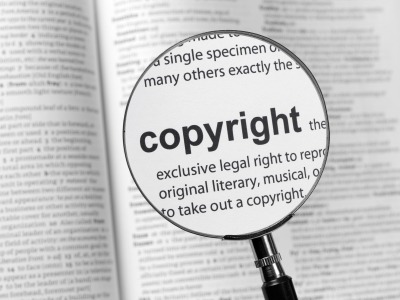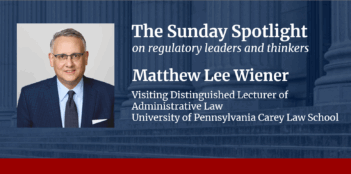
Incorporated materials may be difficult to obtain, so agencies must make them available at their own expense.
On December 8, as the first item on the agenda of its 55th Plenary Session, the Administrative Conference of the US (ACUS) will consider a proposed recommendation on agencies’ incorporation of private organization standards into their notices of rulemaking, rules, and guidance documents. The proposed recommendation accepts the proposition, embodied in the National Technology Transfer and Advancement Act of 1995, that consensus standards developed by the American National Standards Institute or similar bodies are often reliable indicators of acceptable safety levels, and their use will result in lower cost for regulators and broader acceptance by the regulated.
Nonetheless, the proposed recommendation is, in my judgment, seriously behind the times in its tolerance for making members of the public pay to find proposed standards, public law, or important guidance. In footnotes 3 and 4 to its preamble, the proposed recommendation expresses doubt over whether government agencies are ever required to pay for the use of copyrighted materials incorporated by reference into regulations (or notices of proposed rulemaking or guidance), but then in text and in the recommendation itself imagines that the public might validly be required to pay for access to copyrighted materials that have been incorporated by reference. ACUS should consider amendments whose basic point is that any payment that needs to be made for the use of copyrighted materials should be made by the agency that benefits (along with the standards developing organization!) from their incorporation by reference. This will create proper bargaining incentives – it is always easier to pay with someone else’s money (consider, in this respect, the impulse underlying the Unfunded Mandates Reform Act) – and it will also honor the thrust of the Electronic Freedom of Information Act and the rule of law generally, that government should never hide from its citizens the laws by which they are constrained.
A “strong federal policy … in favor of agency use of voluntary consensus standards,” which the proposed ACUS recommendation notes, and on which it relies, is commendable, but that policy does not require the threat of obscuring the law from those affected by it. We should not be adding to agency incentives to incorporate materials by reference, by permitting them to shift to the affected public costs that are properly their own. To do so also potentially reduces the utility of the rulemaking process, by adding to the costs that potential commenters must pay in order to understand just what standards an agency is proposing to require. The proposed ACUS recommendation appears to rely on a statutory provision permitting the Director of the Federal Register to approve the use of materials incorporated by reference in lieu of Federal Register publication where Federal Register publication is legally required, if those materials are “reasonably available.” That phrase has long been understood to permit copyright holders to charge for access to their materials – even if made binding by adoption in a regulation – at least so long as a copy can be inspected gratis at the Office of the Federal Register (OFR) and, perhaps, in one or more agency reading rooms.
In my judgment, the Electronic Freedom of Information Act (E-FOIA), with its universal requirements that rulemaking proposals, final rules, and guidance that might affect a member of the public be available on agency websites, has undermined any claim that public inspection at a physical site is adequate to make law “reasonably available.” Clearly enough, before 1996 and the development of electronic libraries, matters were different, and if agencies have continued in habitual ways that made the use of copyrighted materials free to them, that may not be so surprising. Nonetheless, in my judgment, E-FOIA has changed this. Since it is the government using the standards, and profiting from their use, it is the government that should be paying for that use, not those citizens who are affected by their adoption. And if agencies must on occasion pay to be able to incorporate materials by reference, that will both encourage their attention to those costs and perhaps, in some cases, persuade them that it is cheaper and better to develop their own standards. These issues were discussed at the recent Council meeting of the ABA’s Section of Administrative Law and Regulatory Practice, and I understand there to have been general agreement with the thrust of what I have expressed here. A presentation made to the Section by Amy Bunk, the Director of Legal Affairs and Policy at the OFR, which by statute must approve incorporation by reference of “reasonably available” materials that would otherwise be required to be published in the Federal Register, made clear that OFR’s concern is with form only, that OFR does not expect to be asked for approval until 20 days before publication of the final rule, and that it exercises no controls over guidance documents. Although notices of proposed rulemaking must be published in the Federal Register, the statute does not require the publication of proposed text, and guidance documents are not required to be published there. And Section 552(a)(2) of the Administrative Procedure Act (APA), which requires that agencies make available guidance materials if they are to be cited to the disadvantage of any member of the public, contains no “reasonably available” qualification.
It is also appears that neither has the OFR made any change in its applicable regulations respecting final rules, nor has the Office of Management and Budget made any changes in its Circular A-119 concerning the use of voluntary technical standards, that purports to accommodate the enactment of the E-FOIA of 1996 – enacted subsequent to the National Technology Transfer and Advancement Act (NTTA) of 1995 – with its requirements of universal availability of rules and guidance documents in agency electronic reading rooms, the E-Government Act of 2002 (requiring Internet availability of rulemaking materials), or the Openness Promotes Effectiveness in Our National Government Act of 2007. As already remarked, Section 552(a)(2) of the APA, requiring the availability of guidance materials on agency websites if they are to be cited to the disadvantage of any member of the public, contains no “reasonably available” qualification. Remarkably, the explanation given for the OMB Circular A-119 at its last revision in 1998, while tolerating the “ability of copyright holders to receive reasonable and fair royalties,” is that “[n]either the [NTTA of 1995] nor the Circular require any agency to use private sector standards which would set regulatory standards or requirements.”
To encourage federal agencies to comport with statutory standards for access to government rules in today’s era of electronic communication, ACUS should recommend that agencies seeking to incorporate by reference proprietary standards act in ways that free the public from any obligation to pay for access to proposals for rulemaking, on which they are invited to comment, or to their law, as E-FOIA effectively requires.
The essay is part of a three-part series, entitled Regulating by Reference.




